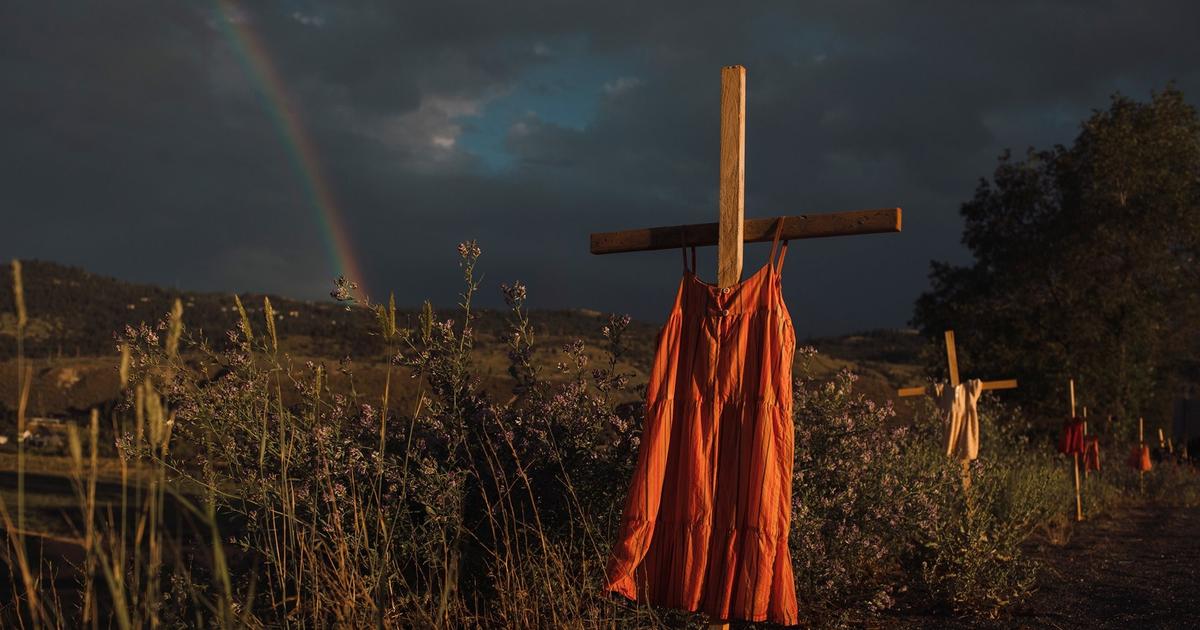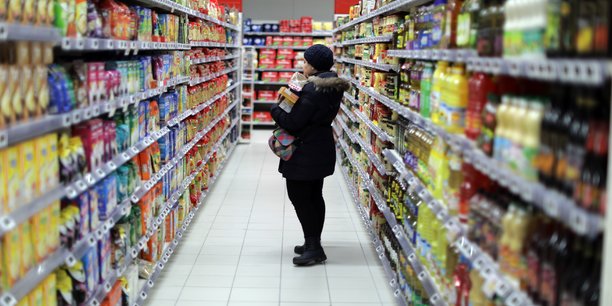
After discovering an ossuary containing more than 200 bodies of children near a native boarding school, photographer Amber Bracken revealed the colonial past that Canada was trying to forget.
The photo, taken by documentary photographer Amber Bracken, won the World Press Photo of the Year award for 2022 on Thursday. It shows little girls’ red and ocher dresses hanging from crosses on a highway in Kamloops, a small town in British Columbia, Canada. .
Read alsoA picture of the Figaro Magazine awarded at World Press Photo
Nearby was a boarding school, where the remains of some 215 indigenous children were found last year† This ossuary was the first in a series to be discovered, forcing Canadians to face their colonial past. Numerous investigations into these former residential schools are underway throughout the country. Authorities estimate that more than 4,000 children may be missing.
“I don’t feel like it’s a photo that could be mine”Amber Bracken, 38, told AFP. “It was a representation of something created by the community to honor and remember their lost children”, she explained. The photo is “a quiet moment of reflection (…) on the history of colonization, not only in Canada, but around the world”said the jury member Rena Effendic† On the left of the photo, a rainbow ends its arc near the site where the mass grave was discovered, the seat of a so-called boarding school, created a century ago to assimilate by force the native population† This picture “inspires a kind of sensory response”said one of the judges.
Indigenous peoples highlighted
Australian documentary filmmaker Matthew Abbott took home the top prize in the Story of the Year category with a series of photos showing how the indigenous Nawarddeken people of remote Arnhem Land used fire as an effective tool to manage land against climate change.
Through a practice called ‘cold burn’, natives light small fire pots in the cool season, burning highly flammable undergrowth and bushland, helping to prevent wildfires, which have devastated Australia with an increase in heat waves. “It’s been done for tens of thousands of years”Matthew Abbott told AFP, “but now, with climate change so rapid, these practices are being fully tested”†
The winners will each receive a reward of 6,000 euros and their work will be exhibited in Amsterdam from April 15 before being shown around the world.



